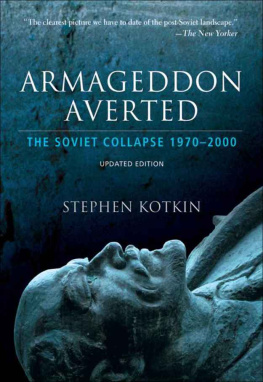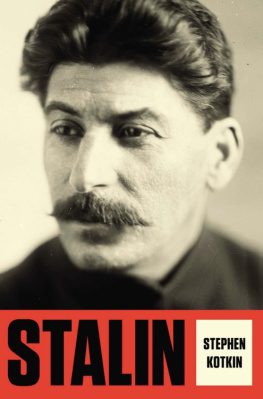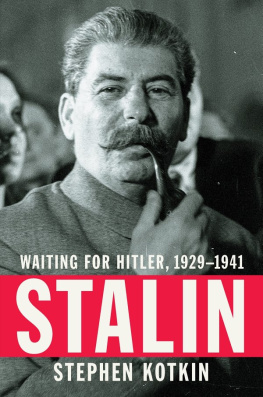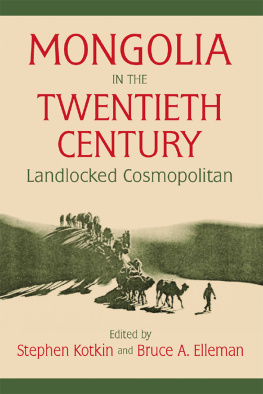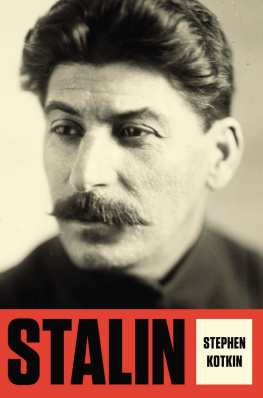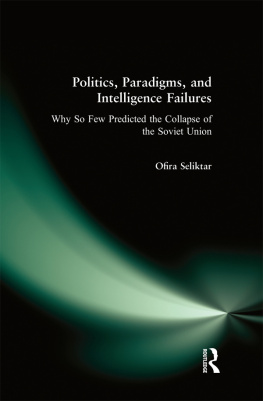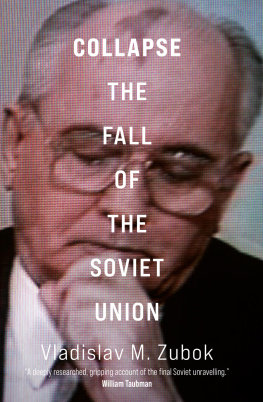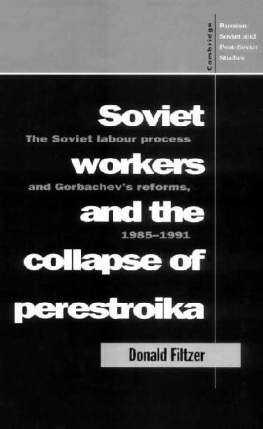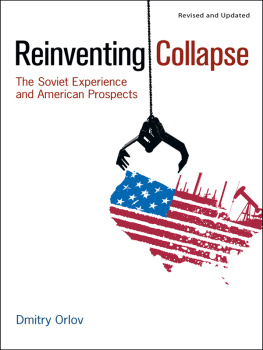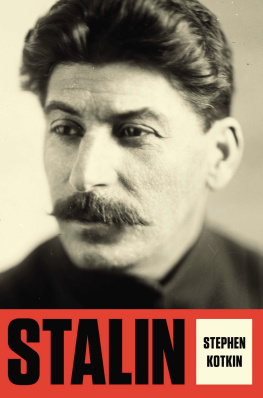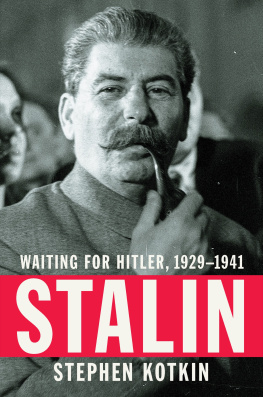Armageddon Averted
Armageddon Averted
The Soviet Collapse, 19702000
Updated Edition
STEPHEN KOTKIN


Oxford University Press, Inc., publishes works that further
Oxford Universitys objective of excellence
in research, scholarship, and education.
Oxford New York
Auckland Cape Town Dar es Salaam Hong Kong Karachi
Kuala Lumpur Madrid Melbourne Mexico City Nairobi
New Delhi Shanghai Taipei Toronto
With offices in
Argentina Austria Brazil Chile Czech Republic France Greece
Guatemala Hungary Italy Japan Poland Portugal Singapore
South Korea Switzerland Thailand Turkey Ukraine Vietnam
Copyright 2001, 2008 by Stephen Kotkin
First published by Oxford University Press, Inc., 2001
First published as an Oxford University Press paperback, 2003
Updated edition first published 2008
198 Madison Avenue, New York, NY 10016
www.oup.com
Oxford is a registered trademark of Oxford University Press
All rights reserved. No part of this publication may be reproduced, stored in a
retrieval system, or transmitted, in any form or by any means, electronic, mechanical,
photocopying, recording, or otherwise, without the prior permission in writing of
Oxford University Press.
Library of Congress Cataloging in Publication Data
Kotkin, Stephen.
Armageddon averted: the Soviet collapse, 19702000 / Stephen Kotkin.
p. cm.
Includes bibliographical references and index.
ISBN 978-0-19-536864-2 (cloth) ISBN 9780-19-536863-5 (pbk.)
1. Soviet UnionHistory19531985.
2. Soviet UnionHistory19851991.
3. CommunismSoviet UnionHistory.
I. Title
DK274. K635 2001
947.085 21 12589041
1 3 5 7 9 8 6 4 2
Printed in the United States of America
on acid-free paper
In memory of my great-grandfather
Michael Korolewicz
(18891969)
who had been a teacher in tsarist Poland and in America
built a chrome, silver, and gold plating business. He used
to take me to the park, beginning when I was in a stroller,
and talk history.
Preface
My first encounter with the Soviet bloc took place one summer in 1983. As a graduate student of Habsburg history, I made my way to Prague from northern California to advance my language skills in pursuit of a bygone empire. On the day of my arrival in the capital of Bohemia, I discovered a mass socialist peace rally. Surprised to hear a familiar voice booming over the loudspeakers, I pushed my way through the crowd to the front, and sure enough it was him: the then socialist mayor of Berkeley.
Socialism in the bloc turned out to be nothing like what I, as an American, had been led to believe. Rather than an ironclad dictatorship in a world completely unto itself, or an unremarkable system gradually converging with that of the West, it proved to be very different from the West yet increasingly penetrated by the West, and its highly rigid structures had to be constantly circumvented to make them function. It was full of incessant complaining but also thoroughgoing conformism, and had a relatively impoverished material culture but a richly engaging sociability. I made up my mind that, upon returning to the University of California, I would begin the study of Russian, and switch empires.
This was on the heels of Polish Solidarity and its underground flying universities, which were hailed as civil society triumphant, but one of my professors, a noted Frenchman, spent considerable effort urging me to use caution with the notion of civil society, which he called the new ideology of the intellectual class. Another professor, in French history, told me that civil society could not exist without private property. Two very fine professors of Russian history helped me get up to speed on a country I hardly knew. When perestroika suddenly broke in the Soviet Union, which of course did not have institutionalized private property, I was saved from what American intellectuals made their principal (mis)interpretation of Soviet, and then Russian, developments, and instead puzzled over the nature of the state and institutions, as well as Soviet categories of thought.
My first trip to the Soviet Union took place in the summer of 1984, the reign of Chernenko, for a Russian language program in Leningrad, with side trips to Ukraine and to the site of the Big Three meeting during the Second World War to decide the fate of EuropeYalta, where I got sick and threw up. In the years following that initial foray, I have been able to undertake very extensive travels, sometimes living for extended periods in the Soviet and the post-Soviet world, doing research in or familiarizing myself with every Soviet republic, except for Turkmenistan, and most countries in Eastern Europe, before and after 198991, as well as China and Japan. Mainly, I spent the years of Soviet and then Russian reform researching and writing a two-volume, French-style total history of the past and present of a Soviet steel town. From that rust-belt vantage point, it could not have been any more obvious that reform was collapse, and that the collapse would not be overcome for quite some time to come.
Convinced before 1991 that the conservatives were right, that Soviet socialism and the Union were being (inadvertently) destroyed by Gorbachevs perestroika, I had sought an audience and got it with the number two man in the Soviet hierarchy, Yegor Ligachev, in his office at Party HQ on Old Square. To be inside the Central Committee complex, whose history and intrigues I knew from reading, had a surreal quality. Beyond attaining the forbidden, I wanted to figure out why neither Ligachev nor anyone else at the top had tried to remove Gorbachev and undo the reforms. This exchange turned out to be one of several long meetings we ended up having, the rest taking place in the exclusive dacha compound of the top Soviet leadership, others of whom I also met. Here, too, was collapse.
I shall never forget later escorting Ligachev around New York, demonstrating and explaining the vast universe of private small businesses and immigrant-run eateries for hours on end, only to have him ask over and over again who in the government was responsible for feeding the huge urban population. The world was as lucky in the pathetic, principled Ligachev as it was in the masterly, principled Gorbachev. Evicted, their place was taken by morally less promising people, who fought violently over the massive spoils of Communist-era offices, state dachas, apartment complexes, and vacation resorts. Making the rounds, I began to see that the best way to understand Russian politics was mostly to ignore the grand reform programs, which would soon be added to their predecessors already choking the archives, and instead closely to track prime real estate.
Before 1991, I had made a point of inspecting the premises of the once almighty State Planning Commission (Gosplan) and State Supply Commission (Gossnab), which together had planned an economy over one-sixth of the earth. After 1991, I would go back, to see the new (and old), or reshuffled, inhabitants. In the chaos of perestroika, I also gained easy access to party headquarters in the republic capitals and many provinces; after these edifices had been renamed, I went back to find many of the people I had known, usually with higher positions, though not a few had moved laterally, and the provincials had often been elevated to the capital. And so it emerged that, just as social constituencies, whether in the rust belt or state bureaucracy, provided the keys to understanding the inherent limits to any proposed political program, patterns of sociability afforded the keys to grasping the dynamics of power.
Next page
